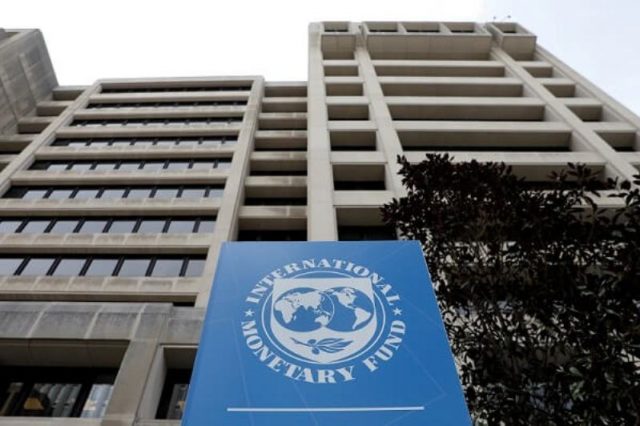…The staff of the Fund provided this assessment of the country’s economic outlook on Monday, after they concluded their 2024 Article IV Mission to Nigeria.
…One of the key areas of concern for the Fund is food insucurity, and advised that the Federal Government should make that an ”immediate priority.”
TUE, MAR 05 2024-theGBJournal| Nigeria’s economic outlook is challenging. Economic growth strengthened in the fourth quarter, with GDP growth reaching 2.8 percent in 2023.
”This falls slightly short of population growth dynamics,” the International Monetary Fund (IMF) said.
The staff of the Fund provided this assessment of the country’s economic outlook on Monday, after they concluded their 2024 Article IV Mission to Nigeria.
In their assessment, the Fund team said in a statement issued by its team lead, Axel Schimmelpfennig, IMF mission chief for Nigeria, that improved oil production and an expected better harvest in the second half of the year are positive for 2024 GDP growth, which is projected to reach 3.2 percent, although high inflation, naira weakness, and policy tightening will provide headwinds.
One of the key areas of concern for the Fund is food insucurity, and advised that the Federal Government should make that an ”immediate priority.”
“With about 8 percent of Nigerians deemed food insecure, addressing rising food insecurity is the immediate policy priority,” it said.
The Fund staff also welcomed the FGs’ approval of an effective and well-targeted social protection system as well as the government’s release of grains, seeds, and fertilizers, as well as Nigeria’s introduction of dry-season farming.
Meanwhile the Fund Staff decribed recent improvements in revenue collection and oil production as ”encouraging.”
Nigeria’s low revenue mobilization constrains the government’s ability to respond to shocks and to promote long-term development. Non-oil revenue collection improved by 0.8 percent of GDP in 2023, helped by naira depreciation.
Oil production reached 1.65 million barrels per day in January as the result of enhanced security. The capping of fuel pump prices and electricity tariffs below cost recovery could have a fiscal cost of up to 3 percent of GDP in 2024.
“The recently approved targeted social safety net program that will provide cash transfers to vulnerable households needs to be fully implemented before the government can address costly, implicit fuel and electricity subsidies in a manner that will ensure low-income households are protected.
The team also welcomed the Monetary Policy Committee (MPC)’s decision to further tighten monetary policy.
The MPC increased the policy rate by 400 basis points to 22.75 percent for a total tightening of 1,025 basis points since May 2022.
”This decision should help contain inflation, which reached 29.9 percent year-on-year in January 2024, and pressures on the naira,” the Fund Stafdf said.
The International Monetary Fund team met with Minister of Finance Wale Edun, Central Bank of Nigeria Governor Yemi Cardoso, senior government and central bank officials, the Ministry of Agriculture, the Ministry of the Environment, as well as representatives from sub-nationals, the private sector and civil society.
X-@theGBJournal|Facebook-the Government and Business Journal|email:gbj@govbusinessjournal.com|govandbusinessj@gmail.com










